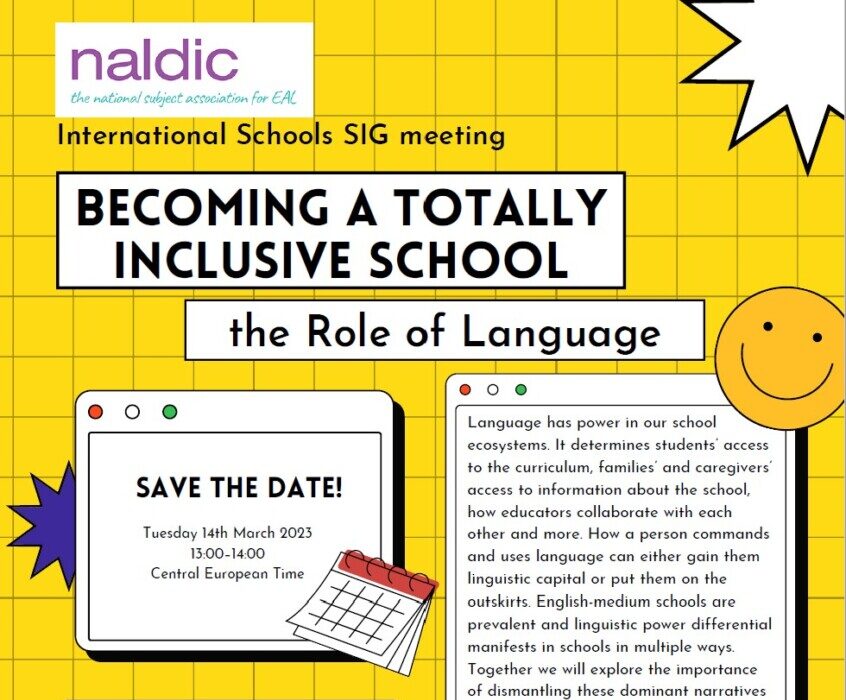Over the past three years, diversity, equity, justice and inclusion (DEIJ) has been a huge topic of conversation and professional development across the international schools sector. How do we build systems that support all students, and all staff, across all areas of the curriculum and the community? How do we ensure that our daily practices reflect our values, and how do we develop a learning community that protects and celebrates diversity? And how do we do that through the lens of multilingualism and language learning? On March 14th, Angeline Aow joined 62 members of our SIG to support our understanding of some solutions that could work in our contexts.
‘Total inclusivity means recognising, valuing, protecting, and nurturing diverse identities’ (Aow, 2023)
Angeline’s session focused on four areas that are relevant to linguistic inclusivity: linguistic capital, languages of power, the power of language and linguistic equity. We were asked to think about what forms our perceptions of additional language learning, and reflect on an extract from Dr. Danau Tanu’s book ‘Growing up in Transit: The Politics of belonging at an International School.’ This 2017 publication offers a personal perspective on what it is to live different multilingual identities as a teen growing up in international schools. Who decides which languages take up space in international schools? Which languages are given and which are chosen? What consequences can we expect if we ignore the social capital of languages within our schools? If English is highly prized amongst our students, how can we support parents, teachers and students to develop their own identity through their linguistic profile?
Later, we were asked to reflect on which languages have power in our school communities and how, in recognising this, we can also recognise which languages are marginalised. The status assigned to particular languages can advantage or disadvantage different groups and lead to languages being seen as a deficit rather than a rich resource. Language can also be a powerful in ‘upholding cultural norms’ i.e. the expectations we have of behaviour within our communities. The group was invited to reflect on a ‘norm’ that we would like to disrupt in order to build a more inclusive and equitable culture. Leading this type of change is challenging but can be supported by three questions:
- Are my actions or those of others promoting inclusivity or perpetuating exclusivity?
- Am I or others part of the problem or part of the solution?
- What will I do?
Would you like to add your thoughts or experience to the conversation? Please comment below or contact our conveners Kate (k.anderson@naldic.org.uk) or Lorna (l.caputo@naldic.org.uk) to have your say.


